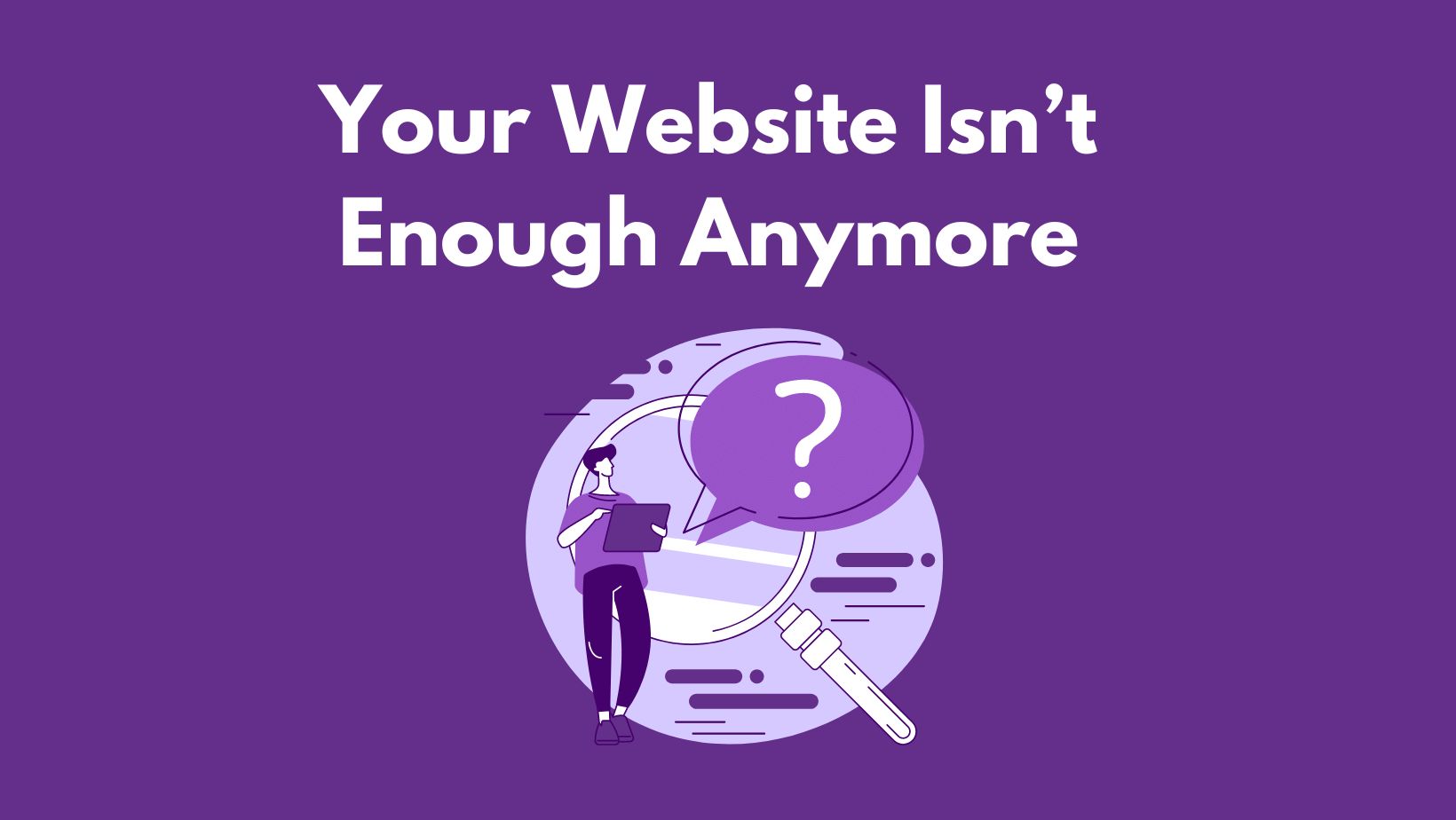WordPress Vs Magento: Which Platform Will Work Best For You?
Do you want to shift your online store from nowhere to everywhere but you’ve failed fast and, unfortunately, often; it’s the right time to think again about which platform will work best for you: WordPress or Magento.
If you want to create an interactive, highly presentable and features-rich website;WordPress, Magento- These are the best platforms that have full capacities to turn your plain ideation into realization.
Beyond a question, they are incredibly user-friendly, easily customizable, very intuitive open-source CMS that will assist you to incorporate eCommerce functionalities to escalate your online business progress across the digital landscape. Even though there are synonymous to each other in the basic features, there are some key differences that set apart to both Content Management Systems (CMS) from each other.
Finding a reliable CMS out of WordPress and Magento is tough-nut-to-crack. Well, to help you come up with the right decision, I’m presenting a comprehensive comparison between two world famous platforms. Surely, it will help you to find one best option for setting up a user-centric eCommerce site.
Let’s dive in!
1- Introduction
a. WordPress
No one can deny that fact: More than 70 million websites are built on WordPress. It shows WordPress is a fantastic Content Management System(CMS), that contains thousands of top-notch themes, plugins, and other inbuilt tools to help you build anything: personal blog, e-portals, portfolio websites, or just an eCommerce website.
It comprises of user-friendly interface, highly customizable options and loads of feature that encourage users to create and customize website, with zero need of having a technical knowledge. So, if you’re not a tech geek; be happy, you won’t have to bother at all. WordPress would do everything for you.
All-in-all. WordPress is one-stop-solution as it has everything to meet your requirements with ease. WooCommerce is one of the key plugins of WordPress, and it’s become a leading plugin since 2011 in the small and mid-sized online merchants due to easy of downloading and most importantly, it’s free.
b. Magento

On the other hand, Magento is also the most popular eCommerce platform equipped with a collection of eCommerce feature to help you create minimal yet professional-looking websites from scratch.
Over 100,000 eCommerce stores are built on this platform; start-ups to giant brand- every business leverages the power of rich features of Magento to create eye-catching and most responsive online stores. Undoubtedly, Magento is everywhere.
This platform consists of everything to help you become robust online storefront. From top-notch customization and functionality support to advanced features i.e.Shopping cart, multi-store management, product catalog and One-Page checkout, Magento has everything to make your dreams come true.
2- Ease of use

a- WordPress
If you’re concerned with unique selling proposition(USP) of WordPress, three words should pop up: Ease of Use.
Yes. WordPress is easy to use and it does contain intuitive user-interface.
Along with being easy-to-use, it houses best eCommerce plugins in abundance.
Actually, having plugins is indispensable for any CMS for eCommerce as they help store owners to not just create, but also tweak and customize a web store for the purpose of generating high leads for your online business.
Another best thing about WordPress is that you don’t need to be highly skilled in coding and programming because this platform is built in a way that anybody can create, add, edit and delete pages and posts of a website in minutes.
b- Magento
Well, for beginners and online merchants with little or no coding abilities, Magento could be a tough choice. You might face complications when it comes to managing multiple product categories, product pages and check out processes etc.
Whereas, you might need to hire a professional Magento development company to help you build a successful web store, without needing you to do heavy lifting.
3- Flexibility

a-WordPress
As far as flexibility concerns, WordPress completely win the race as it offers a full range of plugins (premium and free), to help you convert plainly simple website into fully-thriving online stores.
A user can extend the functionality of online store and can add incredible eCommerce features e.g. Event listings, Inventory, Shopping cart integration, Product catalog management, credit card integration, contact forms, live chat box functionality and so much more to give hassle-free and rich shopping experience to your customers.
It’s flawless functionality isn’t just limited to eCommerce plugins, even, WordPress has various other best plugins such as speed optimization, social media integration, caching, and SEO etc.
Plus, it ensures safe and secure integration with widely known payment services worldwide i.e. Paypal.
b-Magento
Since WordPress offers wider collection of plugins covering all purposes. Whereas, Magento focuses mainly only on eCommerce features. It is purely eCommerce platform but out of the domain of online commerce, this CMS fails to fill the requirement of a user.
It is a second good choice for you to create your online store because of its core features and handy capabilities and Magento really helps its users to stand out in the competition.
Also, a user can integrate to some of the most powerful extension to escalate overall functionalities of your web store, arrange your product catalog, build highly responsive and mobile-friendly designs and lots more with ease.
4- Security

Photo Credit: Pixabay
a-WordPress
Security is one of the major concerns for an eCommerce site owners. That’s because people are making payments online and they want a safe and secure environment.
From security standpoint, WordPress is not a good choice. Lately, it has been vulnerable to hacking attacks and various other security threats. Its vulnerability increases when more eCommerce plugins are added into it.
Better evaluate CMS before adopting it because any third-party plugins might cause you harm because they are insecure and can affect the security of your website greatly.
Security perspectives of WordPress make it tiring experience for online merchants as they have to update plugins, themes and lots of other things to keep themselves secure from hackers.
So, if your intention is to double the revenue of your storefront without getting under the radar of hackers and threats, WordPress may disappoint you somehow.
b- Magento
Magento is satisfactory choice as far as it has a plethora of best features. Since, it comes with a big collection of extensions, a user doesn’t have to worry at all about insecure code or any other security threat.
All you need to do is to ensure that- whatever extension you’re installing is reliable and developed by a professional and credible developer.
Always remember: a secure and safe web store does help you create a strong customer base for online business. And, it’s only possible when you’ve all important extensions installed on your website to help you keep your site and online business safe from security threats and especially hackers.
5- Development

a- WordPress:
WordPress is actually built to be developer-friendly as it’s not complex and programmatic at all. Likewise, WordPress is highly flexible in comparison to Magento. So, development-wise, WordPress is for everybody.
b- Magento:
Magento is highly advanced and it is an enterprise-level ecommerce platform because it’s built in this way- to cater just online businesses. Therefore, processes are more complex and really programmatic than WordPress.
6- Search Engine Optimization

Photo Credit: Unsplash.com
a- WordPress:
To succeed at SEO in WordPress, it’s really important for you to only count on cleanly coded themes, and reputable plugins e.g. Yoast SEO. Since, WordPress is intuitive and easy to set-up, optimizing your online store for search engines won’t be hard enough. Just log into the site’s dashboard, fill all SEO-powering field and you’re all ready to go.
b- Magento:
Well, to succeed in SEO for Magento, users should be assured of how well-scripted a theme is. In contrast to WordPress, Magento isn’t really made with content marketing in mind. Therefore, you or any online store manager will have to go the extra mile to increase the onsite SEO.
Even though Magento is an incredibly strong platform for eCommerce, however, it doesn’t give up its basic elements such as UI (user-experience) to help you with search engine optimization (SEO) endeavors.
Takeaway:
Still, are you dumbfounded as what CMS to choose for online store or just building a website?
Well, It shouldn’t be as I’ve mentioned key and most important comparisons clearly.
- WordPress is good because it is simple, customizable, flexible and user-friendly CMS.
- Magento is fully eCommerce platform helps people create interactive online stores from scratch.
So, if you’re considering flexibility, user-friendly interface, ease-of-use: WordPress should be your first-choice.
Technically, Magento is an object oriented platform, that is more complicated to learn. It demands real programmatic and technical approach to develop a website. However, built-in security feature of Magento will make your eCommerce site more secure to combat major cyber threats.
Alright, to ease up this situation for you; I’m going to help you decide which best option to choose knowing the business specific purpose.
Find out the Ultimate Purpose of your Online Store
You should discover the ultimate goals of your web store: Do you want to create a web store? Or do you want to build a multi-vendor marketplace; Certainly, you’re going to select the best available option by finding out a real purpose of your online presence.
A- If your goal is to provide virtual products then WordPress is an ideal solution for you.
Wondering Why?
Because, you don’t have to integrate complicated and mind-numbing shipping arrangements, tracking of orders or anything because it lets you install Easy Digital Download to market your digital products easily.
B- Do you want to build a multi vendor marketplace? It means you want to sell hundreds and thousands of services and products online. For this, you require more dedicated platform i.e. Magento. This platform has all features and functional to help you setup a professional online store from scratch.
Final Word: WordPress vs Megento: Which platform is best for you?
Clearly, Magento is an ideal platform as it has best enterprise-level ecommerce development capacities. On the other hand, WordPress has best features to assist you in building revenue-generating Online Store.
In a nutshell, if you want to create something bigger, Magento is the perfect choice for you because it is highly secure and one most important thing: Security is secrecy and secrecy is the victory. Be first-class web store owner with outstanding security.







